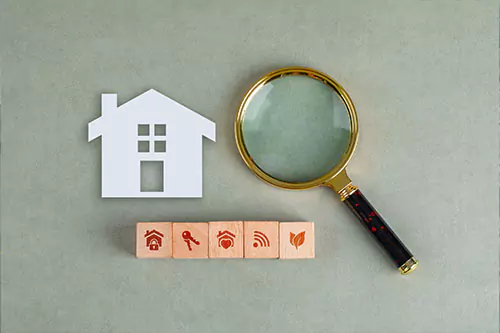10 Ways to Become a Successful Real Estate Developer
Real estate development presents endless opportunities to shape communities, create innovative buildings, and bring fresh ideas to life. The success of a real estate property developer is closely tied to their strategic choices. There is a growing interest among young entrepreneurs and motivated individuals eager to take up real estate business. One of the key ways to get into real estate business is investing in real estate which involves in establishing partnerships with existing real estate developers. This will offer a gateway into real estate business ecosystem. Here are 10 ways to become successful real estate developers in Chennai.
Tips to Become a Successful Real Estate Developer
1. Understand the Market
Before investing in real estate development project, it's crucial to have a solid grasp of the real estate market. Analyze trends, demographics, and economic indicators in your desired location.
Tip:
Regularly read industry reports, attend local real estate meetings, and network with a successful real estate developer to stay updated.
2. Build a Strong Network
Real estate development is a collaborative effort. Building relationships with architects, contractors, real estate agents, and financial advisors can provide valuable insights and support throughout your projects. Networking can also lead to potential partnerships, financing opportunities, and access to off-market deals.
Tip:
Join local real estate investment groups and attend industry conferences to expand your network.
3. Secure Adequate Financing
Financing is one of the most critical aspects of real estate development. You’ll need to explore various options, including traditional bank loans, private investors, and crowdfunding platforms.
Tip:
Prepare a comprehensive business plan and financial model to present to potential investors, showing them how you plan to generate returns.
4. Master Project Management
Effective project management is essential to keeping your development on time and within budget. Learn to coordinate various aspects of the project, from permitting and design to construction and marketing.
Tip:
Consider obtaining a certification in project management or taking courses that focus on real estate development.
5. Conduct Thorough Due Diligence
Before purchasing a property, due diligence is important as you can find out potential issues that could impact your project. This includes environmental assessments, title checks, zoning regulations, and neighborhood studies. Failing to do your homework can lead to costly surprises down the line.
Tip:
Hire professionals to assist with inspections and assessments to ensure all bases are covered.
6. Focus on Sustainability
As the demand for eco-friendly developments rises, incorporating sustainable practices into your projects can set you apart from competitors. Consider energy-efficient designs, green materials, and sustainable landscaping. Not only can this appeal to environmentally conscious buyers investing in real estate but it may also lead to cost savings over time.
Tip:
Stay informed about local incentives for sustainable building practices that can help reduce costs.
7. Develop a Strong Marketing Strategy
Once your property is ready, a robust marketing strategy is key to attracting buyers or tenants. Utilize a mix of digital marketing, social media, traditional advertising, and open houses to generate interest. Highlight unique features and benefits of your development to stand out in a crowded market.
Tip:
Leverage virtual tours and drone footage to showcase your properties online, making them more appealing to potential buyers.
8. Stay Adaptable
The real estate market is dynamic, with trends and demands evolving over time. Successful developers are those who can adapt to changes, whether they’re shifts in consumer preferences, economic downturns, or emerging technologies. Stay flexible and be willing to pivot your approach based on new information.
Tip:
Keep an eye on emerging trends in the industry, such as smart home technology or remote work trends, and be prepared to incorporate them into your projects.
9. Learn from Your Mistakes
Every developer will encounter challenges and setbacks along the way. The key to success lies in learning from these experiences. Conduct a post-mortem analysis after each project to understand what worked, what didn’t, and why. This reflection can provide valuable insights for future endeavors.
Tip:
Consider keeping a journal or a log of your projects, noting lessons learned and best practices to refer back to.
10. Commit to Lifelong Learning
The real estate development field is always evolving, and continued education is vital to staying ahead. Attend workshops, webinars, and courses to keep your skills sharp and your knowledge current.
Tip:
Follow industry leaders on social media and subscribe to relevant podcasts or blogs to gain insights from experienced developers.
Conclusion
Becoming a successful real estate developer requires a combination of market knowledge, networking, financial acumen, and adaptability. By following these ten tips, you can position yourself for success in this exciting industry. Remember, each project is a learning opportunity, so stay curious, remain committed to your goals, and don’t be afraid to take calculated risks. We hope that these tips to become real estate developer will help you shape a successful career in the industry.




